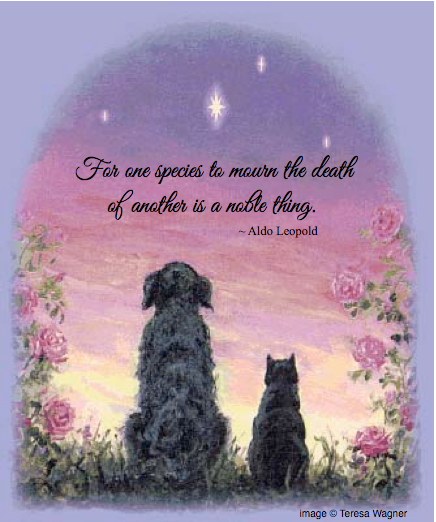Today would have marked the 16th anniversary of when we adopted Lovie from ARF. We celebrated his “dog day” with extra treats and park time or even a beach day since the weather is normally nice in September in the Bay Area. He passed one month before his 16th birthday. He was a fighter and a lover of life to the vary end. He like so many other pets was dearly loved and will be missed. This site is dedicated to pet owners everywhere who like to explore and enjoy the world with their pets. This article is in support of those who have lost a pet.
Key Takeaways
Pet Loss Syndrome is a real and deeply impactful experience, similar to losing a human loved one.
Symptoms of grief can include sadness, anger, guilt, and even physical ailments.
Addressing grief is crucial for emotional and physical health.
Effective coping strategies include seeking support, starting self-care routines, and memorializing your pet.
Grief is a non-linear process and can last from a few months to over a year.
Understanding Pet Loss Syndrome and Grieving a Pet
When we lose a pet, it feels like losing a family member. This intense emotional pain is often referred to as Pet Loss Syndrome. Pets offer unconditional love and companionship, and their absence leaves a void that can be incredibly challenging to fill.

“Grieving Process When a Pet Dies …” from www.amazon.com and used with no modifications.
What is Pet Loss Syndrome?
Pet Loss Syndrome refers to the profound grief and emotional turmoil one experiences after the death of a beloved pet. It encompasses a range of feelings, from deep sadness to anger and guilt. This syndrome is not just an emotional state but can manifest physically, affecting one’s overall well-being.
Symptoms and Reactions
Grieving a pet can trigger a variety of symptoms and reactions. Understanding these can help you navigate through your feelings more effectively:
Sadness: A deep sense of loss and longing for your pet.
Anger: Frustration or anger towards circumstances or even yourself.
Guilt: Feelings of responsibility or regret about your pet’s death.
Physical Symptoms: Changes in appetite, sleep disturbances, or even physical pain.
These symptoms can be overwhelming, but acknowledging them is the first step toward healing.
Why It’s Important to Address Grief
Ignoring grief can have serious repercussions on both mental and physical health. Unresolved grief can lead to depression, anxiety, and a host of other emotional issues. Therefore, it’s essential to address your feelings head-on and consider methods for anxiety reduction.
“When you are able to make meaning out of the loss of your pet, you are able to find a deeper sense of inner peace. And eventually allow the joyous moments to outweigh the sorrow.” – Animal Action
Effective Coping Strategies for Pet Loss
Finding ways to cope with the loss of a pet is crucial for emotional healing. Here are some strategies that can help you navigate through this difficult time:
Seeking Support
One of the most effective ways to cope with grief is by seeking support from friends, family, or support groups. Talking about your feelings can provide immense relief and help you feel less isolated. For those with anxious pets, creating a safe space for dog anxiety can also be beneficial during this time.
Reach out to friends or family members who understand your bond with your pet.
Join online forums or local support groups dedicated to pet loss.
Consider speaking with a therapist who specializes in grief counseling.
Starting Self-Care Routines
Taking care of yourself is crucial during this time. Implementing self-care routines can help you manage your emotions and maintain your physical health.
Exercise: Regular physical activity can help alleviate symptoms of depression and anxiety.
Nutrition: Eating balanced meals can improve your mood and energy levels.
Sleep: Ensure you get enough rest to help your body recover from emotional stress.
Mindfulness: Practices like meditation or yoga can help you stay grounded and focused.
Memorializing Your Pet
Creating a memorial for your pet can provide a sense of closure and a way to honor their memory. This can be a comforting ritual that helps you process your grief. For additional support, consider exploring anxiety reduction training for coping mechanisms.
Create a photo album or scrapbook of your pet’s life.
Plant a tree or garden in their memory.
Write a letter to your pet expressing your feelings and memories.
Hold a small ceremony or gathering to celebrate your pet’s life.
Finding Professional Help
Sometimes, the grief can be too overwhelming to handle alone. Seeking professional help can provide the support and guidance needed to navigate through this difficult period.
Look for therapists who specialize in pet loss or grief counseling.
Consider joining a pet loss support group for shared experiences and mutual support.
Utilize online resources and hotlines dedicated to pet loss grief.
Finding Professional Help
Sometimes, grief can be too overwhelming to handle alone. Seeking professional help can provide the support and guidance needed to navigate through this difficult period. Here are some ways to find professional help:
Consider exploring anxiety reduction training as part of your journey to cope with the loss of a pet.
Look for therapists who specialize in pet loss or grief counseling.
Consider joining a pet loss support group for shared experiences and mutual support.
Utilize online resources and hotlines dedicated to pet loss grief.
Remember, seeking help is a sign of strength, not weakness. Professional guidance can offer new perspectives and coping strategies that you might not have considered.
The Length of the Grieving Process
Grieving the loss of a pet is a deeply personal experience, and the duration of grief can vary widely from person to person. Understanding what to expect can help you navigate this emotional journey more effectively.
What to Expect
Grief is not a linear process. You might find yourself moving back and forth between different stages of grief. Some days will be better than others, and that’s perfectly normal. Here are some common experiences during the grieving process:
Initial shock and disbelief.
Periods of intense sadness and crying.
Moments of anger or frustration.
Feelings of guilt or regret.
Gradual acceptance and healing.
These feelings can come and go in waves. Some people might start to feel better after a few weeks, while others might take several months or even longer to fully process their grief.
Factors Influencing Grief Duration
Several factors can influence how long your grieving process might last. These include:
The bond with your pet: The closer you were to your pet, the longer and more intense your grief might be.
Circumstances of the loss: Sudden or traumatic losses can be harder to process than expected or natural deaths.
Support system: Having a strong support system can help you cope more effectively with your grief.
Personal coping mechanisms: Your individual coping strategies and mental health can also play a significant role.
Understanding these factors can help you be more compassionate with yourself as you navigate your grief.
Normalizing Grief Stages
It’s important to understand that grief is a normal and natural response to loss. You might go through several stages of grief, and that’s okay. Recognizing these stages can help you feel less alone in your experience. For those dealing with anxiety, creating a safe space can be beneficial.
Most importantly, remember that there is no “right” way to grieve. Your process is unique to you, and it’s essential to honor your feelings and take the time you need to heal. For more insights, read about the unique stages of grief after losing a pet.
5 Stages of Grief After Losing a Pet
Understanding the stages of grief can provide a roadmap for your emotional journey. These stages, initially identified by Elisabeth Kübler-Ross, can help you make sense of your feelings and find a path toward healing.
Denial and Shock
The first stage of grief is often denial and shock. This is a natural defense mechanism that helps you cope with the initial impact of the loss. You might find it hard to believe that your pet is really gone.
During this stage, you might feel numb or disconnected from reality. This is your mind’s way of protecting you from the full force of your emotions. Allow yourself to feel this way and understand that it’s a temporary phase.
Anger
As the reality of your loss sets in, you might start to feel angry. This anger can be directed at various sources, including yourself, others, or even your pet for leaving you. It’s essential to acknowledge this anger and find healthy ways to express it.
Talking to a trusted friend or writing in a journal can help you process these feelings. Remember, it’s okay to feel angry, and expressing it can be a crucial step in your healing journey.
Bargaining
In the bargaining stage, you might find yourself making “deals” in your mind, wishing for things to be different. You might think about what you could have done differently to prevent your pet’s death.
“If only I had taken them to the vet sooner, maybe they would still be here.”
This stage is often accompanied by feelings of guilt and regret. It’s important to remind yourself that you did the best you could with the information and resources you had at the time. This stage is a normal part of the grieving process and will eventually pass.
Depression
Depression is a common stage of grief where the full weight of your loss hits you. You might feel overwhelmed by sadness and have trouble finding joy in everyday activities. For more insights, read about the stages of grief after losing a pet.
During this stage, it’s crucial to take care of yourself. Reach out to your support system, engage in self-care routines, and consider seeking professional help if your feelings become too intense.
Remember, it’s okay to feel sad and to grieve. Allow yourself the time and space to process your emotions, and consider exploring anxiety reduction training for additional support.
During this stage, it’s crucial to take care of yourself. Reach out to your support system, engage in self-care routines, and consider seeking professional help if your feelings become too intense. For more advice on how to cope, you might find this guide on socializing traumatized rescue dogs helpful.
Remember, it’s okay to feel sad and to grieve. Allow yourself the time and space to process your emotions.
Acceptance
The final stage of grief is acceptance. This doesn’t mean that you forget about your pet or that the pain completely goes away. Instead, it means that you come to terms with your loss and start to find a new normal without your pet.
During this stage, you might find yourself reminiscing about the happy times you shared with your pet. You may also start to feel more at peace with the situation. Acceptance is about finding a way to move forward while still cherishing the memories of your beloved pet.
Conclusion: Embracing the Journey of Healing
Grieving the loss of a pet is a deeply personal and emotional journey. It’s important to understand that your feelings are valid and that it’s okay to take the time you need to heal. By acknowledging your grief, seeking support, and finding ways to memorialize your pet, you can navigate through this difficult time and eventually find peace. For more insights on the unique stages of grief, you can read this article on losing a pet after 15+ years.
Remember, grief is not a linear process, and it’s normal to experience a range of emotions. Be kind to yourself and allow yourself to grieve in your own way. Your pet may be gone, but the love and memories you shared will always remain a part of you.
Frequently Asked Questions
Grieving the loss of a pet can raise many questions. Here are some common queries and answers to help you navigate this challenging time: For those considering opening their hearts again, the Seniors for Seniors pet adoption program can be a wonderful option.
How can I help my child cope with the loss of their pet?
Encourage open communication and let them express their feelings.
Reassure them that it’s okay to feel sad and to cry.
Involve them in memorializing the pet, such as creating a scrapbook or planting a tree.
Read books about pet loss together to help them understand their emotions.
Helping your child through this process can also aid in your own healing journey. You might also consider creating a pet-safe sensory garden as a way to remember your pet.
Is it normal to feel guilty after my pet’s death?
Yes, it’s common to feel guilty after losing a pet, especially if you think you could have done something differently. It’s important to remind yourself that you did the best you could with the information and resources you had at the time. Guilt is a normal part of the grieving process, and it will eventually pass as you come to terms with your loss.
When should I consider getting another pet?
There’s no set timeline for when you should get another pet. It’s a personal decision that depends on when you feel ready. Some people find comfort in getting a new pet soon after their loss, while others need more time to grieve. Make sure you’re emotionally ready to welcome a new pet into your life and that you’re not trying to replace your previous pet. If you’re considering adopting a senior pet, you might find the Seniors for Seniors pet adoption program helpful.
How can I keep my pet’s memory alive?
There are many ways to keep your pet’s memory alive:
Create a photo album or scrapbook of your pet’s life.
Plant a tree or garden in their memory.
Write a letter to your pet expressing your feelings and memories.
Hold a small ceremony or gathering to celebrate your pet’s life.
These activities can provide a sense of closure and help you honor your pet’s memory.
Are there local or online support groups for pet loss?
Yes, there are many support groups available for those grieving the loss of a pet. These groups can provide a safe space to share your feelings and connect with others who understand what you’re going through. Look for local support groups in your community or join online forums and social media groups dedicated to pet loss. Talking to others who have experienced similar losses can be incredibly comforting and healing. For more insights, you can read about why we need to take pet loss seriously.
Pet loss syndrome is a real and profound experience that many pet owners go through. The grief of losing a pet can be overwhelming, and it’s important to allow yourself time to heal. Understanding the 5 stages of grief can help you navigate through this difficult period. Remember, everyone’s journey is different, and there is no right or wrong way to grieve the loss of a beloved pet.





